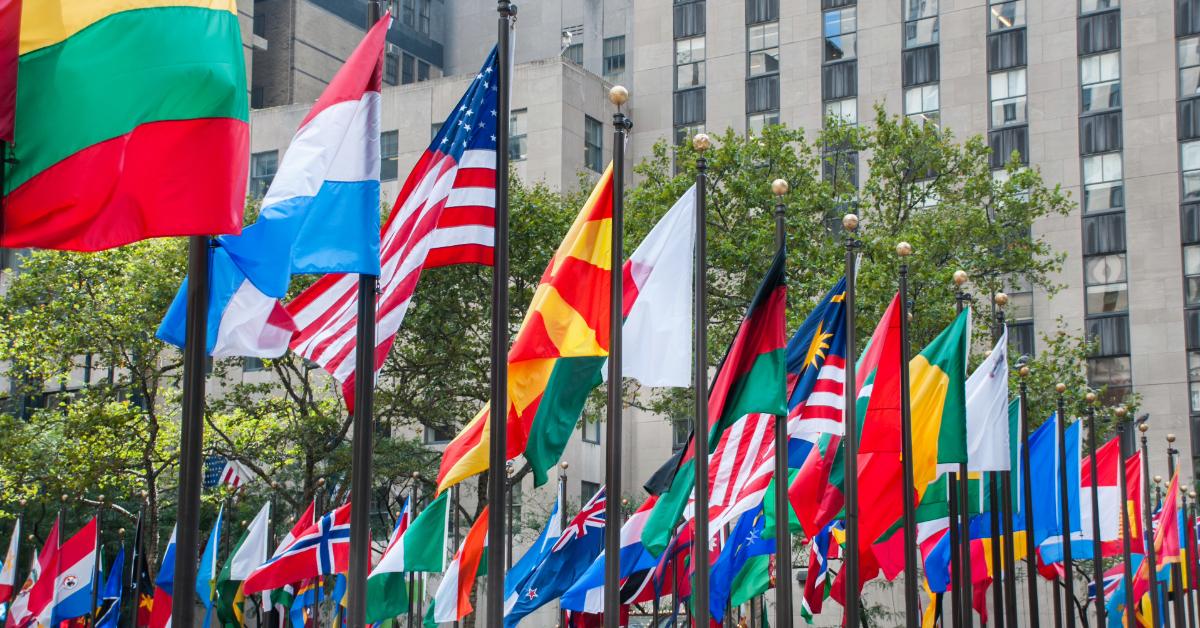To achieve sustainability, the world needs stability. Yet two-thirds of countries are facing major economic, political, and social problems. Most of them are also experiencing ethnic or civil conflicts, mass migration and poverty crises. The question is whether the UN’s sustainability agenda can succeed in the context of ongoing or simmering conflicts.
Paradoxically, preventing wars and conflicts isn’t one of the UN’s seventeen sustainable development goals. Perhaps there is a reason for this omission. Conflicts and wars are not a set of conditions that can be easily isolated. They are often a combination of failures in a dozen related areas that the United Nations promises to miraculously synchronize by 2030 in its quest for sustainability.
As an anthropologist interested in rural areas and agriculture, I have extensively observed and studied the Balkan countries (Serbia, Kosovo, and the Greek-Albanian border). One in a series of troubled regions. Serbia and Kosovo have been struggling to maintain peace for the last thirty years, although the animosities that escalated in the war of 1999 could be traced back to the last hundred years.
Greek-Albanian relations have not been promising either. Although they have not experienced armed conflict, sporadic localized violence has occurred. In Kosovo, for example, institutional bottlenecks created during the long period of conflict and the historical legacy of animosities, accompanied by ethnic resentments and informal rules, ultimately hamper trade, movement and prosperity of people, including their commitment to peace.
The UN’s concept of sustainability, however, does not provide a recipe for healing broken social ties and resentments that have a critical impact on decent work and economic growth (SDG 8), or reducing inequalities (SDG 10), or sustainable cities and communities (SDG 11). An entrepreneur who happens to be a Kosovo Serb can hardly expand her business beyond the symbolic borders of Serbian enclaves in Kosovo. Similarly, an Albanian entrepreneur can hardly expand her business in Serbia. In both cases, the labels “made in” (either in Kosovo or in Serbia) and the language of the products (Albanian or Serbian) make a difference that ordinary consumers and trade regulators seem to care about.
Although Serbia and Kosovo are members of CEFTA and each country is committed to the market economy, they have hardly removed market access barriers between themselves. Moreover, they have been strengthened to keep imports out. Similarly, safety regulations are often used as an excuse to protect domestic producers, but also to prevent the import of products from the unfriendly side. The common regional market is not really working the way CEFTA predicted. The region is not richer; it is not safer; it is not open; and it is not peaceful.
One of my major milestones in studying the Balkans was the discovery that in conflict (and post-conflict) areas, there are barriers that cannot be torn down by economic logic. Ethnic labeling of products or entrenched resentments are examples of such barriers. Even if the products are competitive and of high quality, they are not able to reach crucial niches of the external, often conflict-ridden society, to connect the actors and to increase social cohesion. Thirty years after the Yugoslav wars, and more than twenty years after the war in Kosovo, the region is no richer, no safer, no more open, and no more peaceful.
It may seem obvious to social scientists that there are not many common economic, political, or community interests among groups in conflict (or post-conflict) societies. People tend to follow the familiar path of avoiding each other, even when there are incentives for change. Where there are no common interests, there are no commitments. Similar patterns can be observed with capital. Especially in the developing and troubled world, capital (symbols, people, and property) seems to move slowly. The “sticky economy,” as Abhijit Banerjee and Esther Duflo call it in their book Good Economics for Hard Times, shows that people in poor countries do not respond to inviting initiatives for free trade, even when it offers many new, though often challenging, opportunities. I wonder why attitudes of resentment should be any different. They are sticky too.
Non-economic difficulties are unlikely to be resolved by technocratic packages of measures that project the promotion of peace-deals or trade liberalization as part of the solution. The commitment to peace requires a much greater effort: lifting the mental barricades that many conflicting groups have against each other. Well, the UN’s sustainability agenda may not have such a mandate, but it can address problems that remain bluntly unaddressed. For example, the UN overlooks the deep-rooted contradictions between local aspirations and global trends, which often do not follow the same path. One of the main aspirations of conflict (or post-conflict) regions is to preserve the bare lives of their children. Or filling empty stomachs. Or rebuilding homes. Or providing safe passage to the grocery store. Or getting basic medical care. These aspirations are quite existential and lack the sophistication of the UN SD goals to be achieved by 2030, such as systematically reducing poverty, empowering youth and women, increasing growth and decent work for all, reducing CO2 emissions and global warming to 1.5 Celsius, or transitioning to green economies.
There is something profoundly naive about the concept of sustainability proposed by the UN. It assumes that the world is a settled place. It perceives conflicts only as sporadic disturbances which do not, in essence, threaten the mission to which the UN has committed itself. The UN’s prophets of sustainability seem not to notice that the world is becoming drastically polarized in terms of values, markets, or the environment. Where there are no common interests, there are no commitments.
In reality, the UN concept of sustainability may seem applicable only to rich societies that have already had their rites of passage and built the foundations to begin with; where there is a minimum level of economic, political, and social cohesion, where sustainability programs seem meaningful, and where they can achieve some of the expected goals. The rest of the world, sadly mired in poverty, conflict, and political dysfunction, will rarely, if ever, respond to such calls until they are locally consolidated.
It raises questions about the will, incentives, and ethics for change that these countries are willing to embrace. Are they capable of changing their entrenched practices that keep them poor and fragile, and only a privileged minority incredibly rich? If political elites in poor countries do not want to improve conditions for the sake of their own people, they are less likely to make the change to please the international community or the UN and its sustainability agenda. Most importantly, do they care enough about local sustainability to bring it in line with global trends?
The world is unsettled, disunited, and disconnected, often not because it chooses to be so (North Korea may be a notable exception), but because it is preoccupied with its own everyday struggles and the polarized interests of great powers. Sharp local and global divisions have been a historical rule, and it would be naive to expect this to change because of abstract and utopian projection of global sustainability.
What will the world look like in 2030? Pretty much the same. The only difference will be a balance of billions of US dollars wasted on a new-wave religion that tries to make the world a better place without affecting the lives and prosperity of people living in dire situations. Their faith in the sustainability of Eden is likely to be scarce. For the two-thirds of the world who are barely making ends meet or trying to survive conflict, the projection of long-term goals for a sustainable global future may be a provocation of common sense.





















